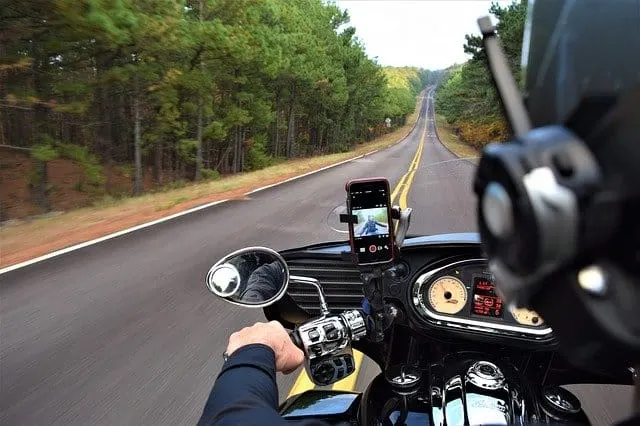
Hopping on your bike, hitting the open road, and experiencing that unique sense of freedom are just some of the reasons why motorcycle travel is so popular among adventure seekers. If you have just bought your first bike and you are planning to use it for touring, there are several things you should keep in mind. Being unprepared can easily put you in harm’s way, so read this article carefully and plan your trip like a pro.
Bike inspection
Your bike must be in optimal condition before you hit the road. Therefore, do a complete inspection beforehand, otherwise, you may find yourself stranded someplace in the middle of nowhere. First of all, make sure your tires are properly inflated. If you have no idea what pressure to inflate the tires, look it up in your manual, online, or look on the side of the tire. Your bike should also have enough tire tread since these ensure the optimum connection between the tire and the ground. Check the oil status, make sure your lights work properly, and that all the cables are in order. Inspect your bike for signs of leakage and replace seals on the forks if needed.
The essentials
Before we move on to baggage and other necessities, let’s go over the essentials. These are the items that probably won’t be on top of your list, but every experienced biker knows you need to have them with you wherever you are headed. Even if you have a GPS, consider bringing an old-fashioned map with you. In case you are going abroad, make sure you get travel insurance. Furthermore, you will need a tool kit that will cover all basic emergency repairs. If you are travelling with a buddy or a group of motorcycle bike lovers, you can split the tools between the riders.
Remember to always have the contact information of a motorcycle collision attorney close at hand in case you are involved in an accident. Being prepared for any and all scenarios is absolutely fundamental when traveling on a motorcycle.
Luggage
If you are planning to invest in a bike luggage, you are probably wondering whether you should opt for a tail bag, tank bag, saddlebag, or a full set. When it comes to a tank bag, make sure you test a fully loaded one near your home. You wouldn’t believe just how much stuff can fit into this bag. The same goes for saddlebags. Avoid strapping large bags to the backrest because they can mess with your balance and cause an accident. Keep in mind that your luggage has to be waterproof, otherwise you may end up without any dry clothes.
Clothing
First of all, you will need proper safety gear. That means you will need to invest in a good helmet, motorcycle jacket, and pants, as well as boots and gloves. Since your body will be covered entirely, you may get hot on sunny days. However, safety comes first, and in this case, it certainly comes before comfort. Your gear can save your life in case you fall, so do not ditch it under any circumstances. Apart from this equipment, you will also need a waterproof suit that will keep you dry if it rains. While the one-piece is much more reliable, the two-piece is much more practical.
Planning the route
Hitting the open road, exploring new places, and sleeping under the stars can sound like a fantastic adventure, but leave camping to the experts. As a rookie biker, you will surely start craving a warm bed really soon, so either plan a shorter trip or make hotel/motel reservations before you get on the bike. In addition, make sure you take breaks. Don’t stop just when you need to buy fuel. Instead, take breaks whenever there is anything worth visiting on your way. Beginner bikers are not accustomed to riding for hours, so if you do not take frequent breaks, you can end up all sore.
Food and drink
You can easily get dehydrated while on the bike, especially on a hot, sunny day. Not drinking enough water can have an impact on your concentration and your general comfort. Therefore, either make sure you take a few sips every time you take a break or invest in a hydration pack. It is a bottle with a long straw that comes in a special backpack. You can throw it over your shoulder and take a sip every now and then without even stopping. When it comes to food, make sure you eat light before the trip. Riding on a full stomach can make you sleepy and cause you to be less concentrated on the road. Instead of eating in chain restaurants, try to opt for locally-owned places and dive into new cultures.
Inform your loved ones
Before you head out the door, make sure your friends or family know where you are going and are familiar with your itinerary. Keep in touch with them, so in case something goes south and you do not contact them as planned, they will know something is wrong.
Going on a motorcycle trip is an unforgettable adventure, and these guidelines can help you be completely prepared for it.
- Sagittarius Man & Gemini Woman Love and Sex Compatibility - January 31, 2024
- Taurus Ascendant Rising Personality Traits in Men (Guide) - January 31, 2024
- How to Seduce and Attract a Sagittarius Man (Seduction Tips) - January 31, 2024
